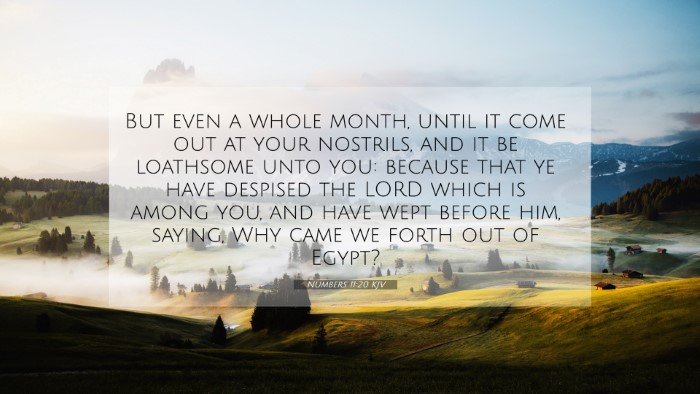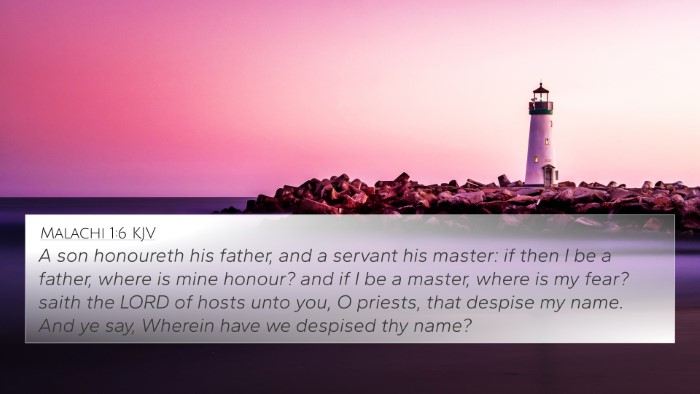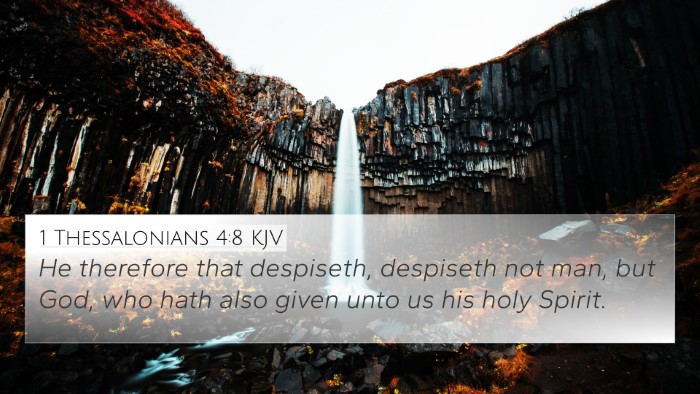Understanding Numbers 11:20
Numbers 11:20 states, "But a whole month, until it comes out of your nostrils and becomes loathsome to you, because you have rejected the Lord who is among you and have wept before Him, saying, 'Why did we ever leave Egypt?'" This verse illustrates the consequences of Israel’s complaining and desires for food that God had previously provided for them in Egypt. The rich insights from various public domain commentaries will deepen the understanding of this passage.
Commentary Insights
- Matthew Henry: Matthew Henry emphasizes that the Israelites' complaints reflect a deeper spiritual issue—discontentment with God's provision and a longing for what they had left behind. He highlights how this leads to divine judgment, showcasing that the fleshly cravings of the people result in their suffering. Henry notes that their rejection of divine sustenance leads to a craving for earthly satisfaction, which proves to be detrimental.
- Albert Barnes: Albert Barnes points out the seriousness of the Israelites’ complaints against God, suggesting that their yearning for the food of Egypt symbolizes a lack of faith and trust in God’s provision. He explains that the "loathsome" nature of the quail becomes a metaphor for God's displeasure and the consequences of turning away from His goodness. This verse serves as a warning against desiring worldly comforts over spiritual fulfillment.
- Adam Clarke: Adam Clarke provides an analytical perspective, discussing how the mention of a "whole month" underscores the extent of God's provision and the subsequent bitterness that may accompany ungratefulness. Clarke considers the implications of God’s gift of quail as a method to chastise the Israelites, illustrating that they have brought upon themselves the burden of their discontent and desires.
Bible Cross-References
This verse connects powerfully with various other passages in the Bible, creating a network of scripture that enhances its understanding:
- Exodus 16:3: The Israelites claim they had better food in Egypt and complain about what God has provided.
- Psalm 78:18-31: This Psalm reflects on how the people tested God through their cravings, demonstrating a cycle of ingratitude.
- 1 Corinthians 10:5-11: Paul uses Israel’s experiences as a cautionary tale about the consequences of disobedience to God.
- Philippians 3:19: This verse warns against having an earthly mindset, paralleling the Israelites’ desire for Egyptian food.
- Isaiah 30:1-3: God rebukes Israel for seeking help from Egypt, illustrating a recurring theme of looking back to worldly systems for security.
- Matthew 6:25-34: Jesus advises against worry over provisions, encouraging faith in God's supply rather than desire for earthly goods.
- Numbers 11:4-6: This earlier passage provides context to their complaints, highlighting their remembering foods from Egypt.
Thematic Connections
Through thematic analysis, we observe that Numbers 11:20 reflects larger Biblical motifs:
- Spiritual vs. Temporal Needs: This passage serves as a reminder that reliance on God’s provision meets spiritual needs, while reliance on past comforts (Egypt) signifies a lack of trust in God.
- The Dangers of Complaining: The Israelites’ complaints cause them to see their past in a favorable light, parallel to Philippians 2:14, where Paul advises believers to do all things without complaining.
- God’s Justice and Mercy: God’s response to the Israelites highlights His righteousness in addressing sin and ungratefulness while simultaneously providing for their needs, which reflects both justice and mercy.
- The Consequences of Rejection: This verse ties in with the New Testament theme of rejecting God’s gifts, as seen in Hebrews 4:2, where disbelief and disobedience in the promised gift leads to spiritual barrenness.
Conclusion
Numbers 11:20 serves to warn us against longing for the past and rejecting God’s providence. This verse resonates through scriptural cross-referencing and provides a rich opportunity for comparative Bible verse analysis. By identifying connections between Old and New Testament passages, one can better understand the consistent message of reliance on God’s provision versus the temptations of worldly desires.
For those engaged in Bible studies, utilizing tools such as a bible concordance, bible reference resources, and bible cross-reference guides can greatly aid in understanding these connections and enriching one’s spiritual journey.















